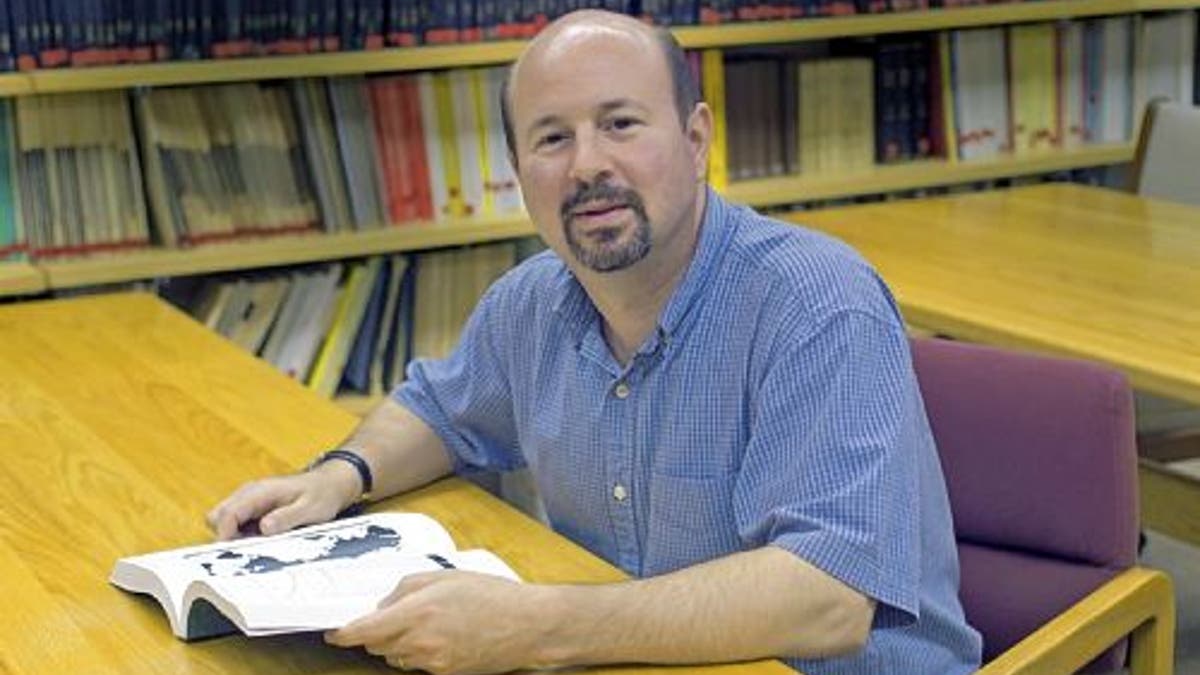
Penn State climate scientist Michael Mann
When a Penn State board of inquiry unilaterally decided that Michael Mann had broken no rules in the climate-data scandal, global-warming alarmists breathed a sigh of relief, thinking the most damaging episode in their effort to save the planet was behind them. They were wrong.
The geology professor's 1998 climate study, which showed a sharp increase in the world's temperatures in the past century, was seen by many as proof that climate change was rapidly occurring and that humans played a significant role in the change. Despite ongoing criticism, the study formed the backbone of global warming theories -- until leaked e-mails cast fresh doubt on Mann's methodology and integrity, notably "the trick" he used to make his data so compelling.
It was those e-mails, stolen from British university East Anglia's climate study group, that sparked Penn State's probe into Mann's work. On Feb. 3, he was exonerated on three of four charges, and the investigation of the fourth charge will be concluded by June 3.
But the final say will be in the hands of a skeptical inspector general at the National Science Foundation, the primary funder of the research into global warming. According to published documents obtained by FoxNews.com, the IG must determine whether Penn State's investigation was adequate.
The Office of Inspector General confirmed that it will review the misconduct charges. A spokeswoman told FoxNews.com that "in accordance with our research misconduct regulation, (45 C.F.R. part 689), when the OIG is provided with an institution's investigation report, we review it for fairness, accuracy and completeness" -- issues the investigation has already been faulted for.
Penn State's investigation came under severe attack by critics who argued that the university failed to interview any hostile witnesses, failed to examine the methodology that was at the heart of the controversy and was more concerned that the millions of dollars in grant money it gets by having Mann on the faculty could be jeopardized by adverse findings.
"It was set up to be a total whitewash, and the panel made no effort to investigate," said Steven Milloy, publisher of Junk Science, a Web site that casts doubt on global-warming research. "They didn't even interview the recipients of the e-mails. It is ridiculous," he told FoxNews.com.
A British review board also looked into the leaked e-mails, studying allegations that East Anglia researchers had tampered with data or perverted the peer review process. That panel found the British scientists innocent on March 31 -- although the panel's review included just a single day of testimony, and also drew ire from warming skeptics.
Mann's study of the climate record over the past millennium introduced the now famous "hockey stick" graph, which showed temperatures along a relatively stable line for centuries and then spiking upward, much like a hockey stick. The image became the icon of climate change because it made the science seem so clear and compelling.
Until, that is, e-mails from the climate study center at East Anglia University surfaced.
Instead of ending the controversy, Penn State's 10-page report clearing Mann opened up a storm of controversy.
Perhaps the most damning charge is that the three-person panel, which claimed it had spent hundreds of hours investigating the allegations, interviewed only two people in its inquiry, neither of whom had any direct knowledge of the e-mails or Mann's work. Moreover, the panel didn't ask Mann for any documents to support his work or to confirm the charges, according to Steve McIntyre, a climate scientist who has questioned many of Mann's findings. "They only looked at what was public," he wrote on his blog Climate Audit.
In effect, he said, the inquiry board failed to inquire.
On the campus at Penn State, the panel's findings continue to cause controversy. Young Americans for Freedom has launched a petition drive to reopen the investigation, this time by an independent body. The conservative student group said that the panel's findings "read more like a letter of recommendation" than an investigative report. The group also pointed out that Penn didn't look at the Wegman report, a congressional sponsored panel that looked into Mann's work in 2006 and criticized much of his research.
Documents sent to Fox by insiders at the National Science Foundation's Inspectors Office indicate that the office is also concerned about the Penn State inquiry and is looking to review the investigation. While reviews are rare, they do occasionally happen. No one in the office would speak on the record, but we were referred to a recent report to Congress that spells out the agency's power to intervene:
Although A-133 does not require NSF to take action on systemic findings when another agency is the cognizant or oversight agency for audit, we believed it prudent to bring these issues to the attention of NSF official.
In other words, once the Penn State inquiry is over, the inspector general will likely step in. And if it does, it will be the first time that climate studies here will be scrutinized by an independent government organization with the skill and tools to investigate effectively.
